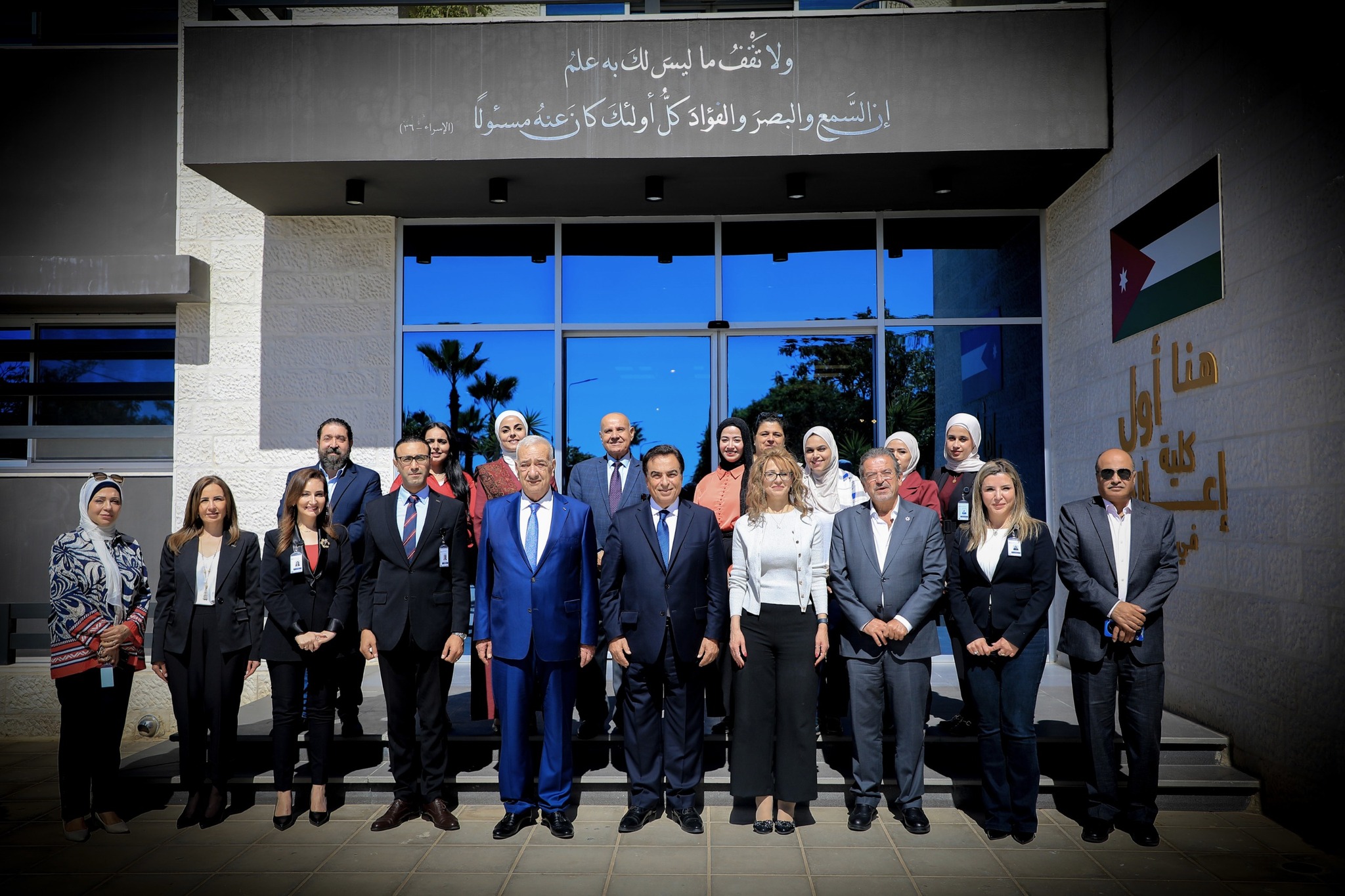
The Faculty of Media at Middle East University recently hosted a distinctive dialogue with the prominent Arab media figure, George Kordahi. Mr. Kordahi offered a direct account of the media’s role in shaping public opinion and its potential to influence societal discourse.
The session witnessed the presence of Dr. Yacoub Nasereddin, Chairman of the Board of Trustees; Professor Salam Al-Mahadin, President of the University; and Dr Ramez Abu Hsaireh, Dean of the Faculty of Media, alongside members of the academic staff.
In this context, Mr. Kordahi expressed his profound gratitude for his presence at Middle East University, describing it as “a great university that constitutes a qualitative addition to the Arab academic landscape.” He also drew attention to the “deep and close historical relationship that binds Jordan and Lebanon at all levels.”
He stressed the necessity of a unified Arab media strategy, arguing that its absence has weakened the Arab voice in international forums and hindered its capacity to influence the trajectory of global debate.
In turn, Dr. Nasereddin emphasised that, given the current regional situations, the media has evolved into a strategic instrument for crisis management, policy formulation, and the shaping of public opinion. He noted that Arab societies today are in dire need of a professional and conscious media discourse capable of bolstering stability, combating misinformation, and rebuilding trust between citizens and sources of knowledge.
In her address, Professor Salam Al-Mahadin contended that Kordahi’s media career represents a “deeply rooted memory for every Arab and a unique case of innovation within the professional sphere.” She stressed that “whoever triumphs in the media war in the post-truth era is the one who possesses the ability to re-engineer reality itself.”
Dr. Abu Hsaireh remarked that Kordahi is considered a “school in his own right”, citing his ability to synthesise objective precision with rhetorical appeal. He added that this approach is precisely what the faculty consistently directs its students to adopt, viewing it as an influential communication tool that generates meaning.
Furthermore, Prof. Hani Al-Badri, a faculty member, highlighted the key dimensions of the Arab media experience. He underscored the importance of viewing the media professional as a driver of society in all its facets, especially at a time when media has become the weapon of the present and the future—a core instrument for building trust, communication, and elevating public awareness.
This meeting ultimately served to affirm that when the media transcends its technical boundaries to embrace its ethical and cognitive domain, it transforms into a strategic tool for repositioning major issues, formulating public consciousness, and constructing a collective memory capable of countering narratives of falsification and hegemony.
